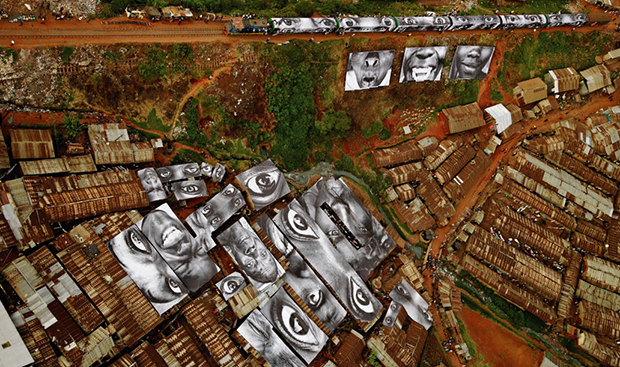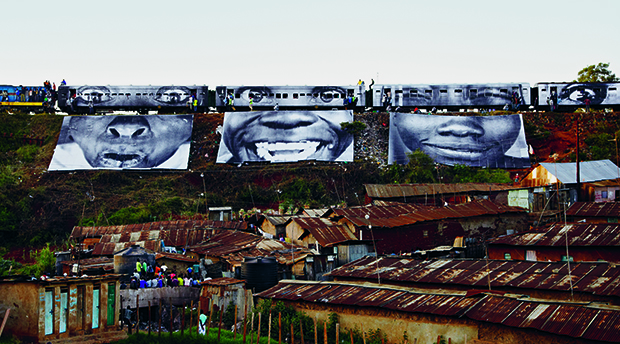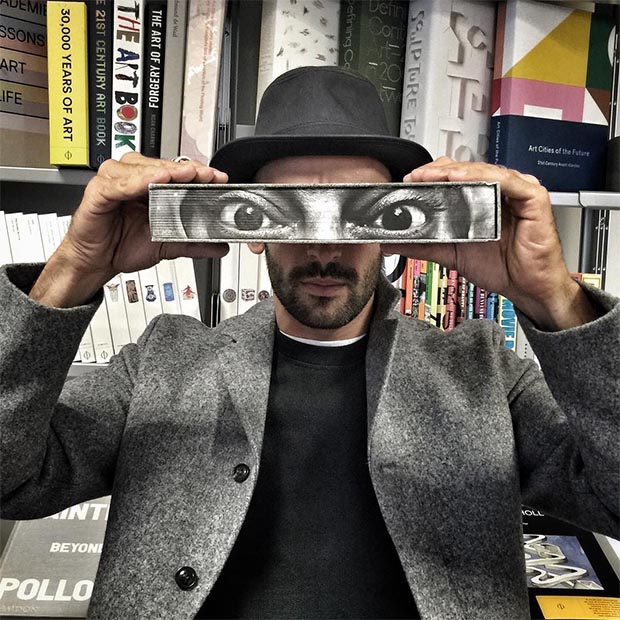
Why has an ad agency 'stolen' this JR artwork?
Relax! Deutsch's removal and sale of JR’s African banners on behalf of a water charity is an 'art heist for good'
For JR the social side of his work, rather than its physical, visual manifestation, is the greater work of art. As he told us a few weeks ago, “Definitely, for me, the art is the process. Each time I think, oh, it’s finished, it’s actually just the beginning.”
Now, one apparently finished piece is taking on an unlikely new role. In January 2009 JR and his collaborators shot photographs of local Kenyan women, printed these images onto waterproof banners, and fixed these banners on to the rooftops of the houses in Kenya's Kibera neighbourhood, the largest informal settlement in Africa, as part of JR's Women Are Heroes project. This celebrated the unacknowledged role women play in holding these communities together. However, the banners also served a more straightforward purpose, by waterproofing the houses to which they were fixed.

This week, the US advertising agency Deutsch claims it is in the process of “stealing” the printed banners from Kibera and offering them for sale, to aid the US sanitisation charity Water Is Life.
In a project that received Ad Week’s Ad of the Day yesterday, Deutsch says its Art Heist for Good will help raise thousands of dollars to pay for local sanitation projects, by offering sections of the banners up for auction in the US and France.
"Heist" might be a little overly dramatic a description of the project, which saw the agency work with local partners to remove the works, and install new metal roofing in its place. However, JR himself has had no involvement in the project, and Deutsch says it “took the art early in the morning, when people were distracted.”
That may sound innocuous, yet the Women Are Heroes works were often installed on the houses of the ladies featured in the pictures, raising the question whether this act of charitable take-and-give is as unambiguously beneficial as Deutsch claims.
"Those with the banners did not know the value," Kristine Bender, Water Is Life’s president, told Adweek. "Many had been ripped up, and even stolen to put on the floor of someone else's home."

Deutsch also describes the project as appropriating “millions of dollars’ worth of unguarded art”, yet their stated auction target is is a more modest $400,000. Perhaps this is because reappropraited public art is notoriously difficult to sell, since, without the artist’s own authentication, it is hard to prove that the works are genuine, as many would-be Banksy dealers have discovered.
Nevertheless, it will be good to see Kibera’s citizens enjoy better sanitation services. Proof that JR’s Art can, as his new monograph puts it, Change the World, even if it isn’t changing it in the way he envisaged.